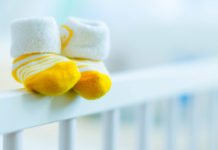Reader question:
I have a daughter who will start high school next year, but is already starting to look like a little woman. I also have a son who has just done a year of high school. There is a lot of talk about ‘boyfriends’ and ‘girlfriends’ – I believe they are too young to be anything except little kids. What can we do to prevent our children becoming sexually active too young? I believe that experiences while too young to understand them can have negative long-term consequences – is this true or am I just being over-protective?
How do we even negotiate this with our kids when they are surrounded by kids their own age having relationships and experimenting sexually?
Sexpert response:
Sexpert, Desiree Spierings BA (Psych) MHSc (Sexual Health); Sex Therapist; Relationship Counsellor; Director of Sexual Health Australia and Editorial Advisory Board Member of Virtual Medical Centre and Parenthub responds:
CONTINUOUS, AGE APPROPRIATE, SEX EDUCATION is key!
We need to educate our children about sexuality, just like we teach them about everything else in life; how to eat appropriately (with a knife and fork), how to greet people correctly, the do’s and don’ts about relationships etc. But when it comes to sex, most parents rather avoid it, or feel like it is something they just need to figure out by themselves.
Sex education is not a one-off conversation. Sexuality is integral to a person’s identity and develops throughout life from birth to death. Therefore sex education starts from birth. Yes even a toddler can understand information about their bodily functions and genitals.
Why is this so important?
Because if the child learns to be ashamed of her body or is confused about their body, this can present later in life as body image issues or shame surrounding their sexuality. For example, help your toddler embrace his/her body by:
- Teaching correct names of body parts
- Celebrate bodily functions – be positive about them (even those nasty bowel-movements – it is nothing to be ashamed off, as it is just part of life)
- Normalise self-stimulation – in other words, don’t slap their hands etc, they are just exploring their genitals and self-exploration and curiosity is normal and healthy.
You might not know exactly when to open up about this topic to your child and how much to tell them at what time. The point is to let your child set the pace of these conversations. So listen to their questions and assess their behaviour.
In your situation, your son is talking about boyfriends and girlfriends, so that means the time has come to talk about what that means and how to have healthy relationships.
It is important to know that sex education encourages open and clear communication to provide a foundation for the development of healthy sexual behaviours and attitudes. It does NOT encourage sex!! Which is what many parents are often afraid of.
It is important to realise that education does not make us make bad choices, it makes us make good choices.
If you did not start from birth – remember it is NEVER TOO LATE to start discussions around sex and this can begin at any time.
Important points when it comes to sex education:
- It isn’t a single tell-all discussion – it starts from birth and is continuous throughout their childhood and adolescence and development, but can begin at ANY TIME
- Let your child set the pace – listen to their questions and assess their behaviour
- Everyday moments are key – answer their questions and talk about it as it comes up, either via messages seen on tv, or by questions they ask etc..
- Expect exploration/self-stimulation/curiosity and embrace it as being part of healthy sexuality
- Be approachable and open when it comes to communication around sex (for example; answer their questions without laughing, don’t avoid it, leave age-appropriate books around, don’t change the channel when there is an intimate scene in an age appropriate movie) – so they are encouraged and feel comfortable to come to you with questions.
However, you are right that early exposure or experience to age inappropriate sexual encounters (or images) can negatively impact children and it interferes with a child’s development and identity. Information about sex should come in age-appropriate incremental stages based on what parents, educators, physicians, and social scientists have learned about a child’s development. But if a child is introduced prematurely to sexual sensations, images, or encounters, that they are developmentally unprepared to process, it can be confusing and overstimulating for children.
This is also the problem with exposure to porn, since sexuality is conditioned. Pornography is certainly nothing new, but in the internet-age it is much more accessible to children. Unfortunately the sex children see in porn movies doesn’t represent reality- it is all about raunchy sex and doesn’t show the loving and caring that are part of real sexual relationships. So once a young boy or girl for example learns to be sexually stimulated via porn images, it is very difficult for them later on to experience sexual satisfaction apart from porn images.
However, it is important to realise that not every child who is exposed to sex, sexual images, or sensations too early will be affected and at worst traumatized in the same way. Just as every person who takes a drink will not automatically become an alcoholic, every child who is exposed to pornography or sexual encounters does not automatically becomes sexual deviant or a sex addict.
Just to highlight my main points, sex education is important, and we need to start sex education from birth and give age appropriate information in incremental stages throughout development. Let your child guide you in terms of when they are ready to learn or know more. The key is to be approachable and open as a parent.



 (12 votes, average: 4.67 out of 5)
(12 votes, average: 4.67 out of 5) 






